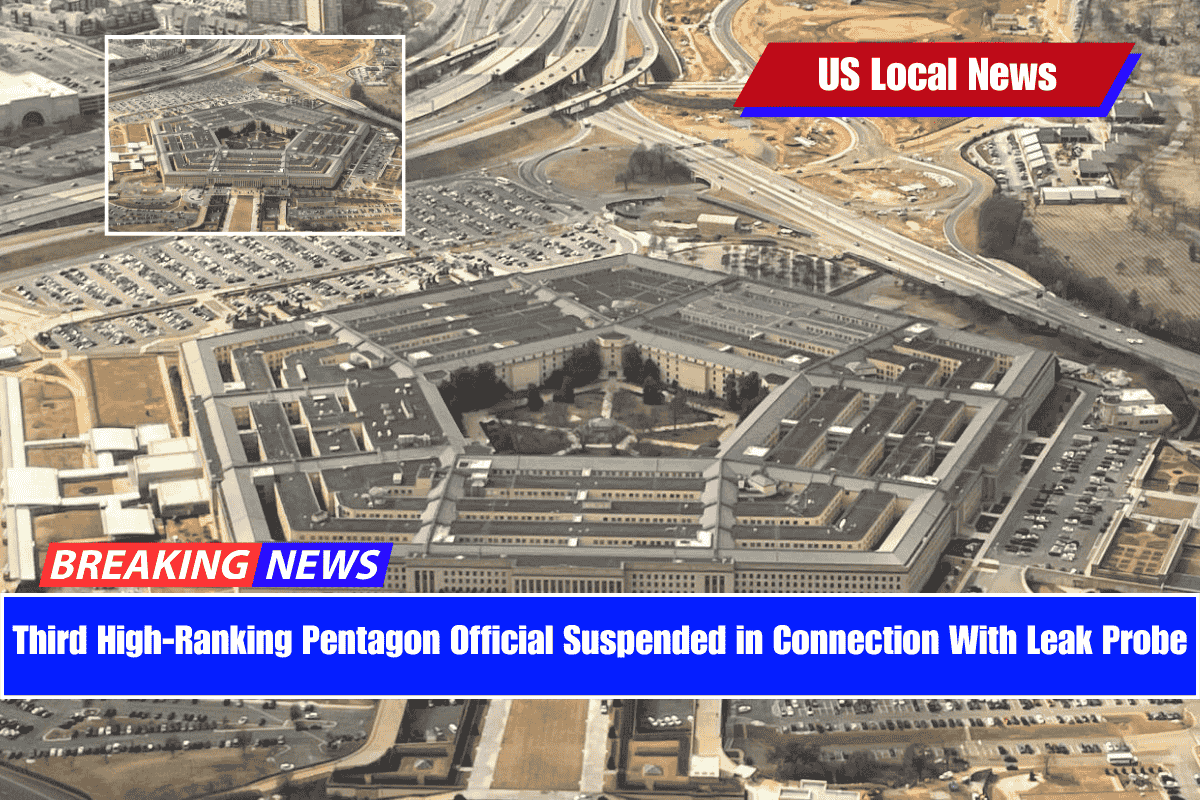Washington, D.C. – The Pentagon has placed a third senior official on administrative leave, widening the scope of a growing leak investigation involving classified military operations and internal communications, according to defense sources.
The latest suspension involves Colin Carroll, chief of staff to Deputy Defense Secretary Stephen Feinberg, and comes just one day after two other political appointees were similarly sidelined.
This wave of disciplinary action is the result of a probe into the unauthorized disclosure of sensitive national security information, with leaked topics ranging from U.S. military strategy in the Panama Canal, the deployment of a second aircraft carrier to the Red Sea, and details about Elon Musk’s controversial visit to the Pentagon to discuss issues related to China and artificial intelligence.
Also under investigation: a reported pause in intelligence collection for Ukraine, a move that had not been publicly disclosed until now.
Who Is Colin Carroll?
Carroll, a Marine Corps Reserve officer, previously worked at Anduril, a private defense tech firm specializing in autonomous military systems.
Before his current role, he was the chief operating officer at the Pentagon’s Joint Artificial Intelligence Center (JAIC)—an assignment that ended after the Biden administration reportedly dismissed him for creating a hostile work environment.
Neither Carroll nor Pentagon representatives have publicly commented on the situation as of April 17.
Other Officials Placed on Leave
The first two officials suspended in connection to the leaks were:
- Dan Caldwell, Senior Adviser to Defense Secretary Pete Hegseth
- Darin Selnick, Deputy Chief of Staff at the Department of Defense
Both Caldwell and Selnick were escorted out of the Pentagon by security personnel and had their building access revoked, according to officials. They previously worked at Concerned Veterans for America, a conservative advocacy group once led by Hegseth himself.
Fallout for Defense Secretary Pete Hegseth
These latest developments are fueling intensifying calls for Hegseth’s resignation, especially from Democratic lawmakers who cite repeated breaches of security under his short tenure. Rep. Daniel Goldman (D-NY) took to social media, stating:
“This is now the second major breach of classified information by the most senior political appointees in [Hegseth’s] two months of leadership at DOD. He should never have been appointed based on merit alone, but now he is a national security threat. Hegseth must resign.”
Critics are also pointing to a recent Signal chat leak, where Hegseth allegedly shared details about U.S. military strikes in Yemen with a closed group of top officials—yet another instance of mishandling sensitive information.
Broader Implications
The Defense Department’s ongoing investigation highlights deep concerns about operational security and the flow of classified information under the current leadership. The topics involved—ranging from Middle East operations to U.S.-China defense dialogues—underscore the seriousness of the leaks and the potential international ramifications.
Legal experts suggest that if the leaks are tied to criminal misconduct, those involved could face disciplinary action up to and including prosecution under federal law. However, the Pentagon has yet to confirm the extent of any legal proceedings.











Leave a Reply